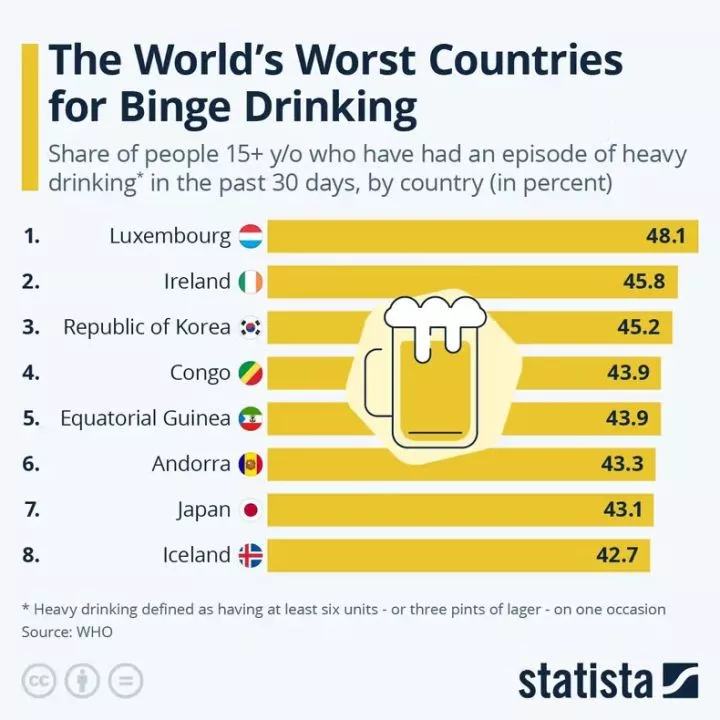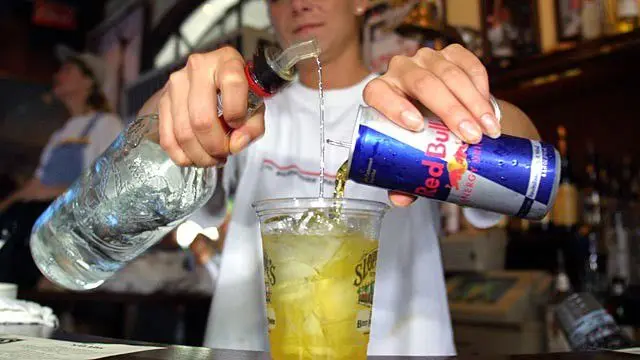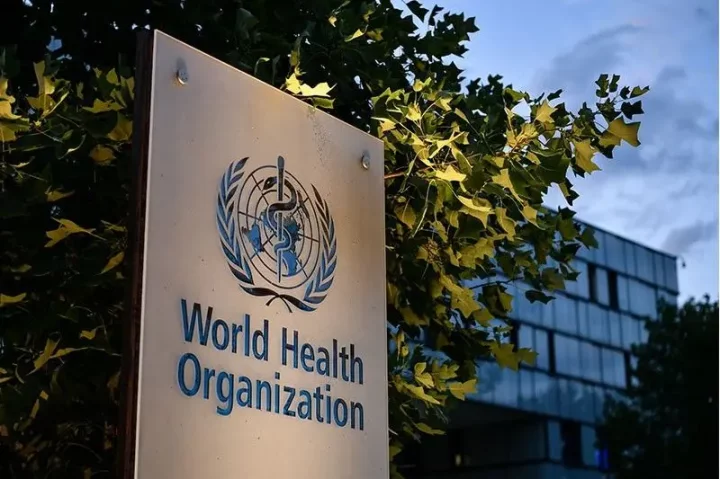
Binge drinking, the excessive consumption of alcohol in a short period, has become a global concern with serious health and social consequences. Whether it's at a weekend party or during cultural celebrations, this pattern of drinking is deeply tied to culture, economics, and the presence (or lack) of regulation.
Binge drinking, as defined by the World Health Organization (WHO), involves consuming more than six units of alcohol-equivalent to about three pints of lager-in one sitting over 30 days. While it is often associated with wealthier nations, this behaviour is also prevalent in developing economies.
Congo (Brazzaville) and Equatorial Guinea, two African nations, have landed on the global list of top binge-drinking countries.
Globally, the WHO has noted that Central Europe, the South Pacific, and parts of the Caribbean are heavy-drinking hotspots, with beer and wine reigning supreme. In many of these places, alcohol consumption is tied to their role as major producers, like France and Germany.
However, the African context tells a different story. In Congo and Equatorial Guinea, where 43.9% of respondents reported binge drinking, alcohol consumption is influenced by unique local factors: affordability, availability, and its deep-rooted cultural significance.

For starters, local beverages like palm wine or distilled liquors are extremely cheap and widely available. Unlike imported or commercial alcohol, these drinks are accessible to almost everyone, even in rural communities. The ease of access and low cost create a culture where alcohol becomes a central part of social life.
Add to that the communal nature of African celebrations, whether it's a wedding, funeral, or a traditional festival, and drinking becomes less about moderation and more about participation in a shared experience.
The social consequences are as concerning as the health risks. Binge drinking contributes to accidents, domestic violence, and long-term health issues like liver damage and cardiovascular disease.















Comments